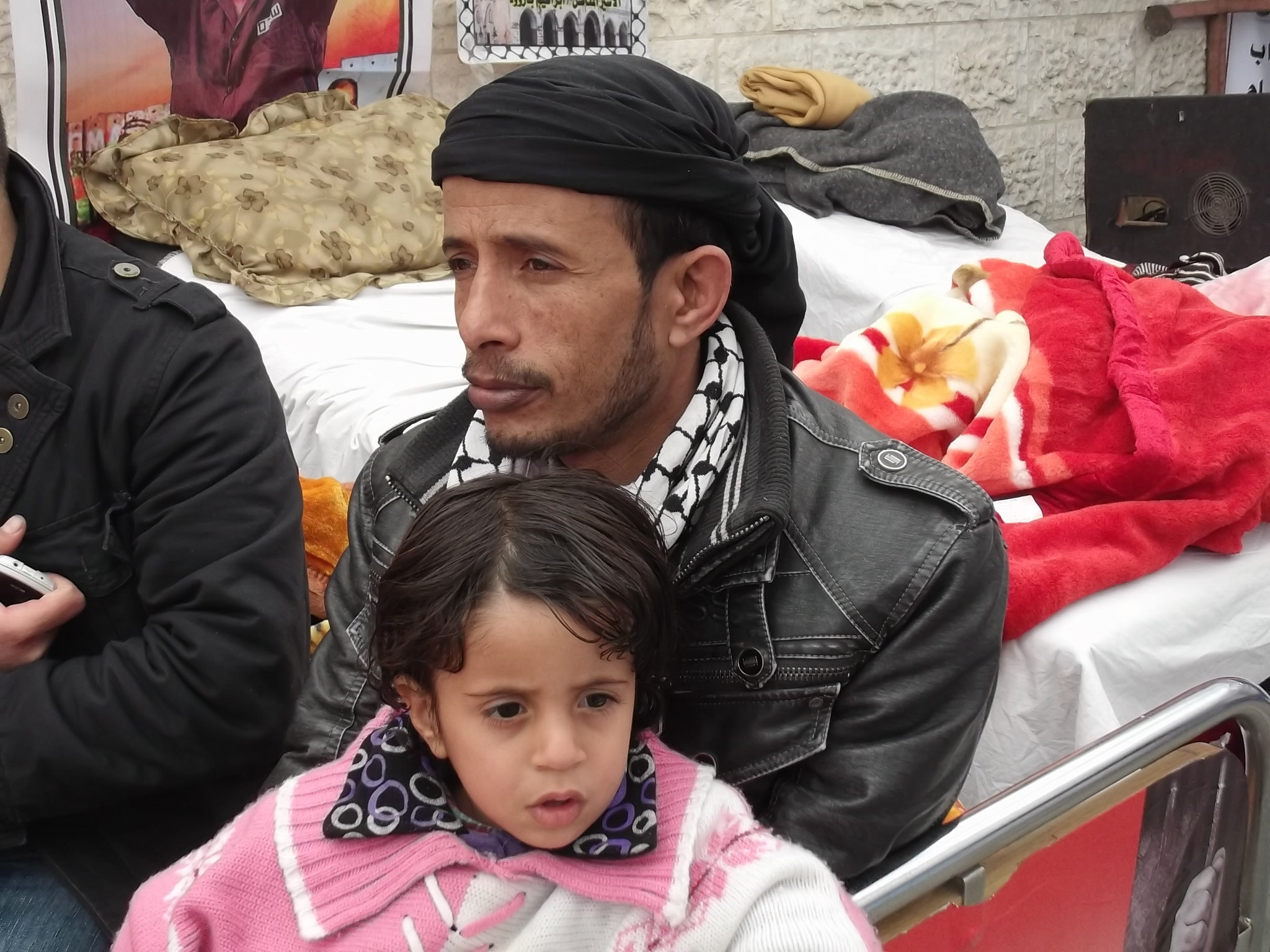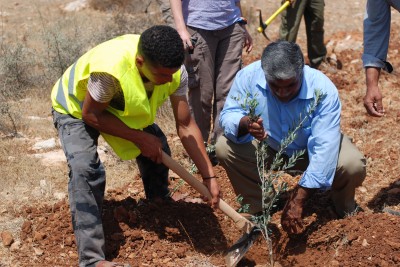-
Israeli military court extends administrative detention for civil rights lawyer Dr. Yousef Abdul Haq
9 February 2012 | Tanweer Enlightenment Forum The Israel military court has extended administrative detention for two months in addition to three months already detained for civil rights lawyer Dr. Yousef Abdul Haq, a lecturer at An-Najah National University and the Cultural Coordinator for the Tanweer Palestinian Cultural Enlightenment Forum, currently detained in Ofer Prison […]
-
In photos: On hunger strike in Gaza
by Mya Guarnieri 10 February 2012 | Alternative Information Center A number of Gazans have joined Khader Adnan’s hunger strike to protest the inhumane conditions that Palestinian political prisoners face in Israeli jails. Israel often holds Palestinians in administrative detention without charges, depriving detainees of their right to due process. Adnan has been on hunger […]
-
Turtles in Aqraba
by Jonas Weber 10 February 2012 | International Solidarity Movement, West Bank “Hurry up you turtles!” Wael yelled in the distance. He had suddenly turned this walk into some kind of contest. We skipped across the rocky landscape of Palestine, dirty and with the sun in our eyes. We were planting trees in the small […]
Action Alert An Nabi Saleh Apartheid Wall Arrests BDS Bethlehem Bil'in Cast Lead Demonstration Denial of Entry Ethnic Cleansing Farmers Gaza Global Actions Hebron House Demolition International law Israeli Army Jerusalem Live Ammunition Nablus Ni'lin Prisoner Ramallah Rubber-coated steel bullets Settlement Settlers Settler violence Tear-Gas Canister Video



